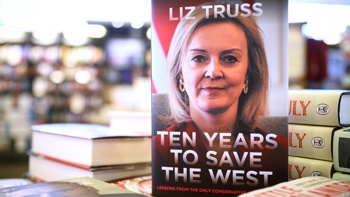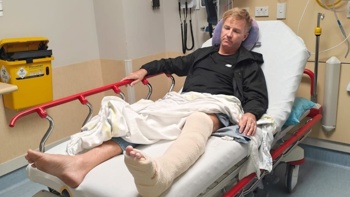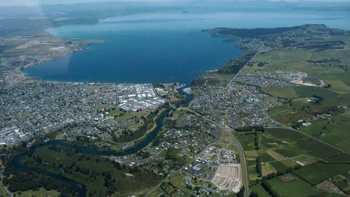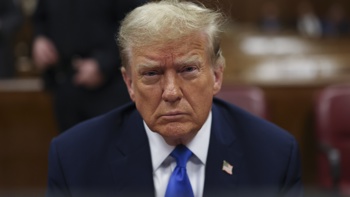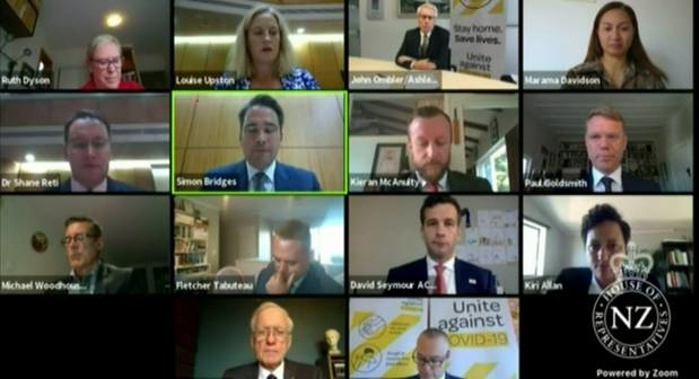
An expert epidemiologist is calling on the Government to quarantine all people arriving in New Zealand from overseas and for a much wider testing and contact-tracing regime to prevent the needless death of New Zealanders from Covid-19.
Otago University Professor and epidemiologist Sir David Skegg appeared before Parliament's Epidemic Response Committee this morning.
He said that the testing that had been done so far had been skewed towards those returning from overseas, and the actual number of cases was "far higher" than the 589 confirmed and probable cases to date.
He questioned whether the Government was still pursuing an "elimination" strategy, which, if successful, could see the country return to "normal" with border restrictions less stringent than the current ones.
Early border closures were a "bold" move by the Government that has bought more time, but he said a comprehensive lockdown by itself was not enough.
"This is so urgent. Every day counts at the moment. We've seen how quickly this virus spreads."
There were several more requirements for success, he said.
"Every effort must be made to prevent spread from New Zealanders returning from overseas, as each day goes by the probability of those people carrying the virus increases."
He noted that Australia was putting all people arriving from overseas into quarantine, and he thought New Zealand should do the same.
But that quarantine had to be enforced and checked, as it is in Singapore by requiring those in quarantine to send text messages multiple times a day.
- Bridges talks supporting Govt while still holding it to account
- Epidemiologist says lockdown may not be enough to flatten the curve
"I just don't think we have that level of checking going on."
Currently arrivals to New Zealand from overseas with a suitable self-isolation plan are allowed to return home.
Far more testing was need, Skegg said, and while the Ministry of Health had loosened the testing criteria, that message had failed to get through to many clinicians in the field.
"I keep hearing of patients that should have been tested but they weren't because they had not been overseas recently."
Rapid case contact tracing was also needed as a "matter of urgency".
"Contacts need to be located, isolated and tested before they start infecting other people. This is a huge logistical exercise and a challenge which I don't underestimate."
He noted that apps had been used in South Korea and Taiwan for contact tracing, and special legislation had been passed for that.
Privacy issues should be looked at to see if apps should be used in New Zealand, he said.
"Who is doing that?"
"A lockdown on it's own is not enough. It's like pressing the pause button.
"We all know how costly this lockdown will be, in human and economic terms. It's a terrible waste if we don't pull out all the stops now to maximise our chance to eliminate Covid-19."
He said there didn't seem to be a clear Government strategy, which should include an alternative plan if elimination failed.
Earlier the head of the all of Government response to the Covid-19 outbreak, John Ombler, told the committee he wants people dobbing in breaches of the lockdown rules to be a last resort.
The Government is enlisting Kiwis to be its spies and pass on any proof of supermarkets price-gouging, or to report their neighbours for breaking the lockdown rules.
A direct email address has been set up for people to send through pictures of receipts or items with questionably high price tags.
Ombler told the committee that the Government's strategy depended on stopping person to person and location to location spread of the disease.
He said his first preference was for people to do the right thing first, to have a conversation about the importance of compliance second, and to dob people in if necessary, but only as a last resort.
"If there are people who simply don't want to play the game, they are putting all other New Zealanders' lives at risk by their actions."
Top public servants and the Health Minister are being grilled this morning about the Government's response to the Covid-19 outbreak and the decision to go into lockdown.
The committee was set up to allow the Opposition to hold the Government to account after the decision was made to adjourn Parliament until April 28.
The 11-member committee is chaired by National Party leader Simon Bridges and has five National MPs, three Labour MPs, and an MP each from Act, the Greens and NZ First.
The head of the Covid-19 response team, John Ombler, appeared first.
Asked about the risk of any arrival from overseas and the risk of them importing Covid-19 to the country, Ombler said authorities were seeking a balance between cooperation and enforcement, and were only using the latter if the former was ineffective.
New Zealanders returning home from offshore are required to have a suitable self-isolation plan before they are allowed to head home. Without a plan, or if they are showing any coronavirus symptoms, they are being forced into a 14-day quarantine.
Asked about people in quarantine at Novotel in Ellerslie being able to go to the supermarket, Ombler said they should not have been allowed out of the hotel and food should have been delivered to them.
He said the use of apps to track people, which has been used overseas, had been considered but has not been taken up at this point.
Asked about whether there should be guidelines issued about the use of the extraordinary powers allowed under the national state of emergency, Ombler said the situation was moving at "extreme pace".
"This is a moving feast. We are learning as we go."
He said "by and large" the public were responding well, and the Covid-19 response team had not much discussion about exercising "extreme powers".
Also up today are Director General of Health Ashley Bloomfield and Health Minister David Clark.
/arc-anglerfish-syd-prod-nzme.s3.amazonaws.com/public/UIEQ5S5F2VBUJAEKMIXRODPCNA.png)
The committee has the power to request ministers and top officials to appear, and will break the drought on the official advice the Government has been getting.
This morning the Government is expected to release the modelling that the decision to go into lockdown was based on.
Prime Minister Jacinda Ardern has previously referred to the modelling, saying it showed that tens of thousands of people could die if steps were not taken.
While some of it is based on modelling that has already been made public, much was also prepared by the All of Government Covid-19 response team.
Yesterday Bridges said it was important there was robust scrutiny of the Government's Covid-19 response, given it would affect future generations both in terms of lives and the economic impact.
"The constructive scrutiny provided by this Committee will make our country's response to Covid-19 a better and stronger one."
Bridges said this week the committee would focus on the health response on Tuesday, the economic response on Wednesday with Finance Minister Grant Robertson and Treasury Secretary Caralee McLiesh appearing, and enforcement on Thursday with Police Commissioner Mike Bush appearing, as well as Ministers and chief executives of Civil Defence and Customs.
The sessions will be livestreamed onto Parliament TV, as well as Parliament's website www.parliament.nz/watch-erc or Parliament's Facebook page: www.facebook.com/nzparliament
Take your Radio, Podcasts and Music with you






